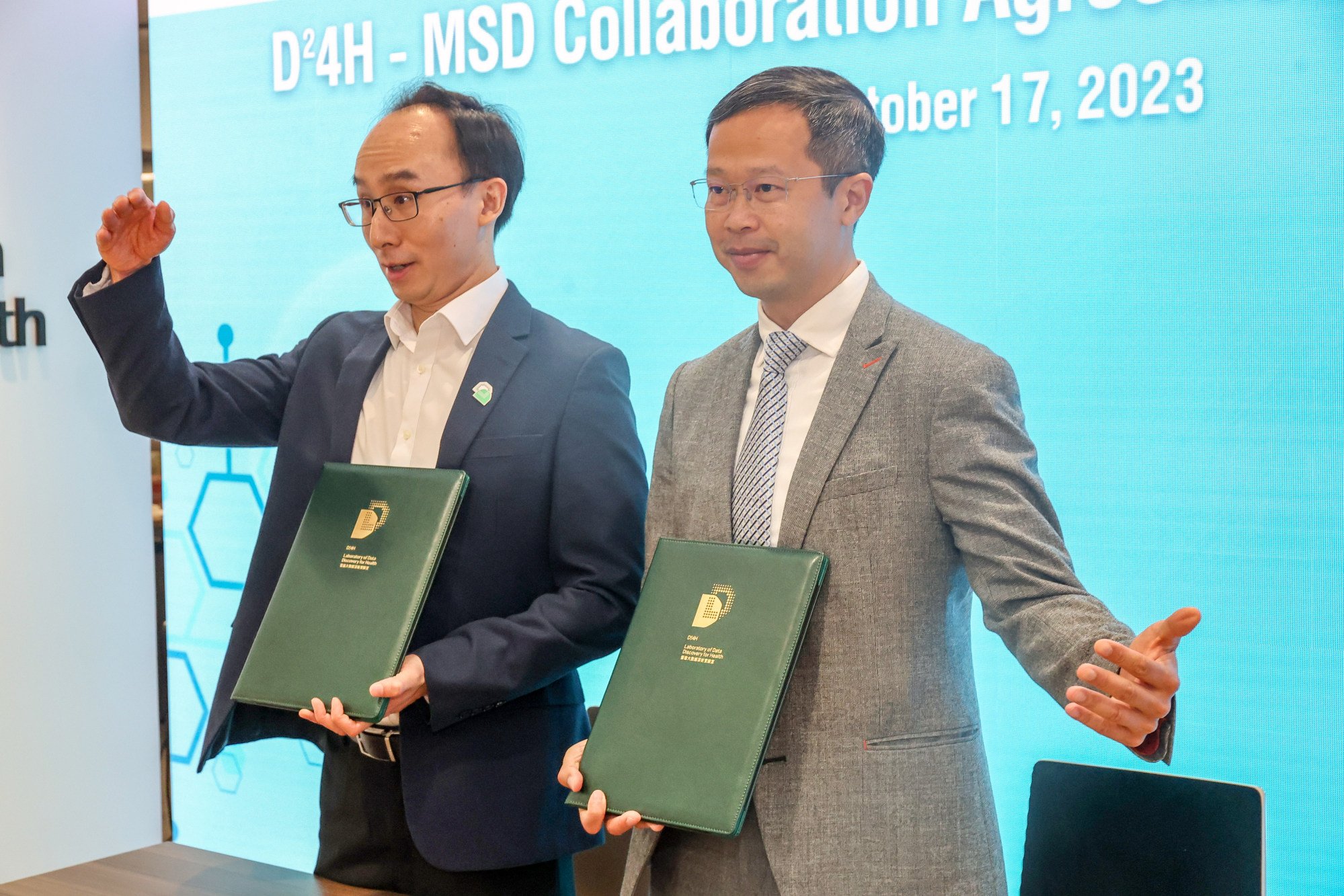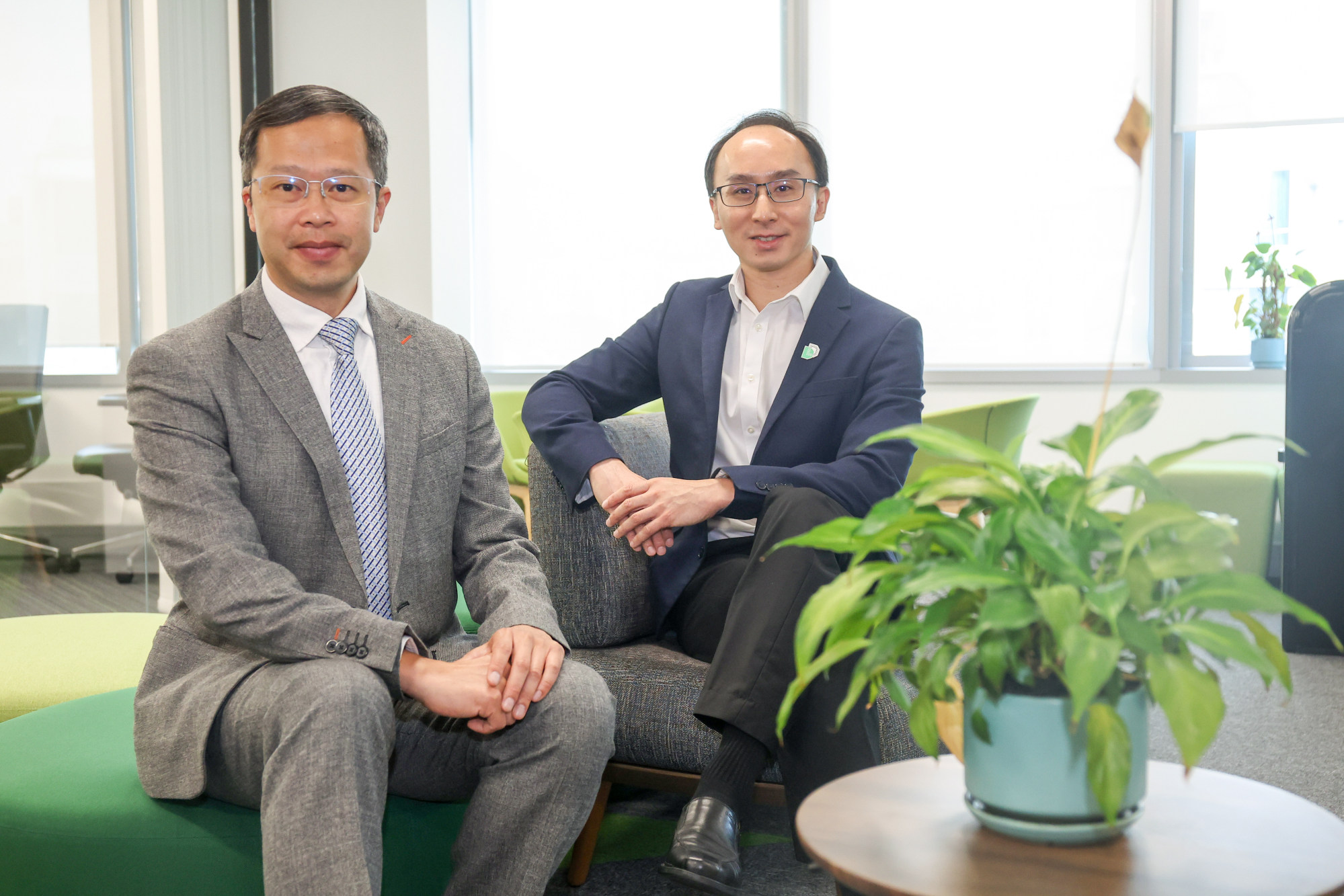
Sharing government health data with the private sector can boost research, bring in new medications to Hong Kong, drug firm chief says
- MSD Hong Kong strikes deal with a university-affiliated laboratory as city strives to be an international innovation and technology hub
- Private companies can use health data to identify people who are less responsive to certain medications, MSD managing director says
Opening government health data up to multinational private companies can help boost biomedical research and introduce new medications in Hong Kong, a veteran pharmaceutical industry leader has said.
MSD Hong Kong and Macau managing director Vincent Tong Wai-shing spoke of the benefits of such a move on Tuesday after signing a partnership agreement on epidemiological research with the University of Hong Kong-affiliated Laboratory of Data Discovery for Health.
Professor Joseph Wu Tsz-kei, the chairman of the HKU laboratory, one of the 28 research centres under the government-funded InnoHK initiative, said various public health units could work together more closely for better research outcomes.

The partnership between MSD, a US pharmaceutical powerhouse known as Merck in North America, and the laboratory came while the city has been striving to be an international innovation and technology hub, as mentioned in the national development plan.
The collaboration will kick off with studies on invasive pneumococcal infection, to which older people and young children are more susceptible. Researchers are set to monitor the disease’s prevalent serotypes to check whether existing vaccines can provide sufficient protection.
“What we are hoping to strengthen is how health data research can be more opened up to private organisations, such as multinational enterprises like ours,” Tong said.
He added private companies could make use of the data to identify people who were less responsive to certain medications and to introduce more new drugs to the city.
GSK chairman lays out steps Hong Kong should take to become biomedical hub
If health data were to open up to the private sector, pharmaceutical firms could be more willing to start clinical trials in the city, according to Tong.
“New medications will come to Hong Kong more quickly,” he said. “When multinational firms have new medications, they may consider Hong Kong for their phase-three clinical trials, or even phase one or two, and patients could be given them to try.”
Tong noted that sharing health data could draw more international enterprises to set up research centres in Hong Kong and consequently, attract more talent to the city in the long run.
UK drugs giant AstraZeneca had already pledged earlier to establish a research and development centre in the city. It was one of about 30 major enterprises from mainland China and overseas committing to invest about HK$30 billion (US$3.83 billion) in Hong Kong.

Health data in the city’s public system is mostly managed by the Hospital Authority, which first made information available to local academic institutions in 2018.
Data opening has been on the rise since last month when the authority signed an agreement with the Science Park to launch a data collaboration lab to give companies based there access to information.
Wu, the lab chairman, said the government could also do more in breaking down silos between departments and facilitate the flow of information for research.
“There is a barrier between local departments,” Wu said.
He said the Department of Health, for example, kept data on disease screening, while the authority maintained information on patients seeking consultations after falling ill.
“If data from both sides is not combined, it is difficult to see [the entire process] from a person’s screening, cancer diagnosis and the following clinical procedures,” Wu added.
How Hong Kong can be a bright light in biomedical innovation
Wu said the health data stored in the authority’s clinical management system, which has been digitised for more than 20 years, offered valuable information to researchers.
For example, researchers could look into the long-term effects and side effects of a medication by studying data accumulated over a long period of time.
He said Hong Kong had an advantage by storing massive amounts of digital health data over the years compared with other cities in the Greater Bay Area, which had only been digitising records for about a decade.

